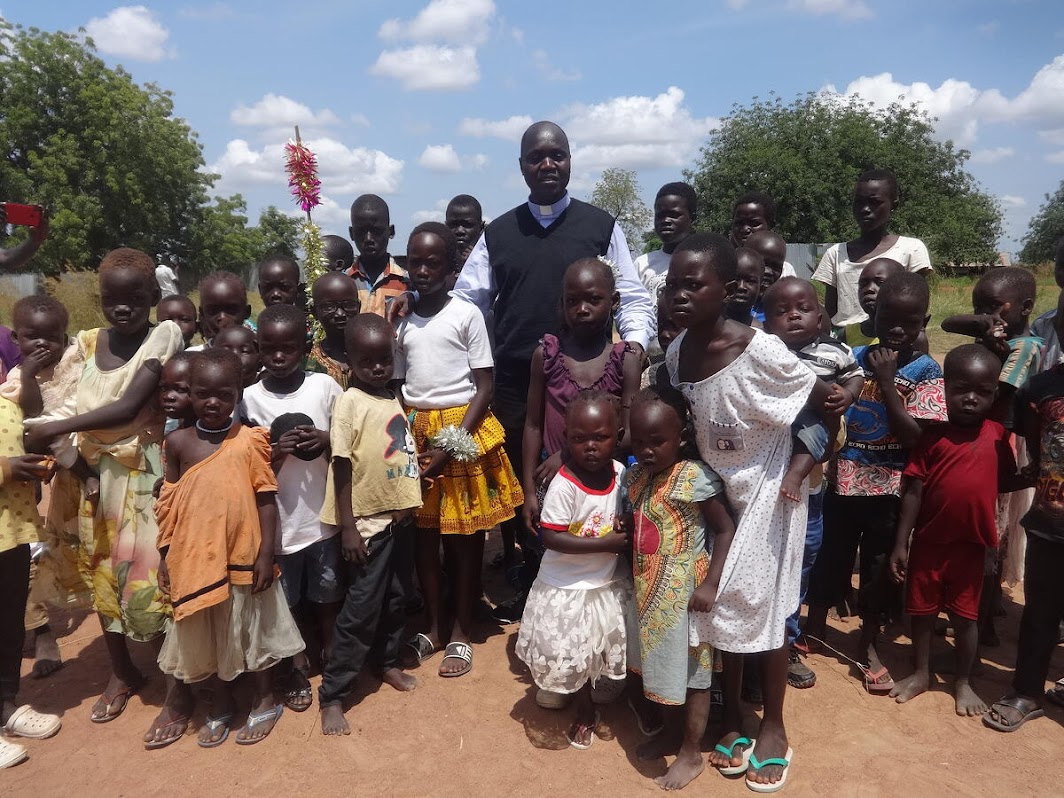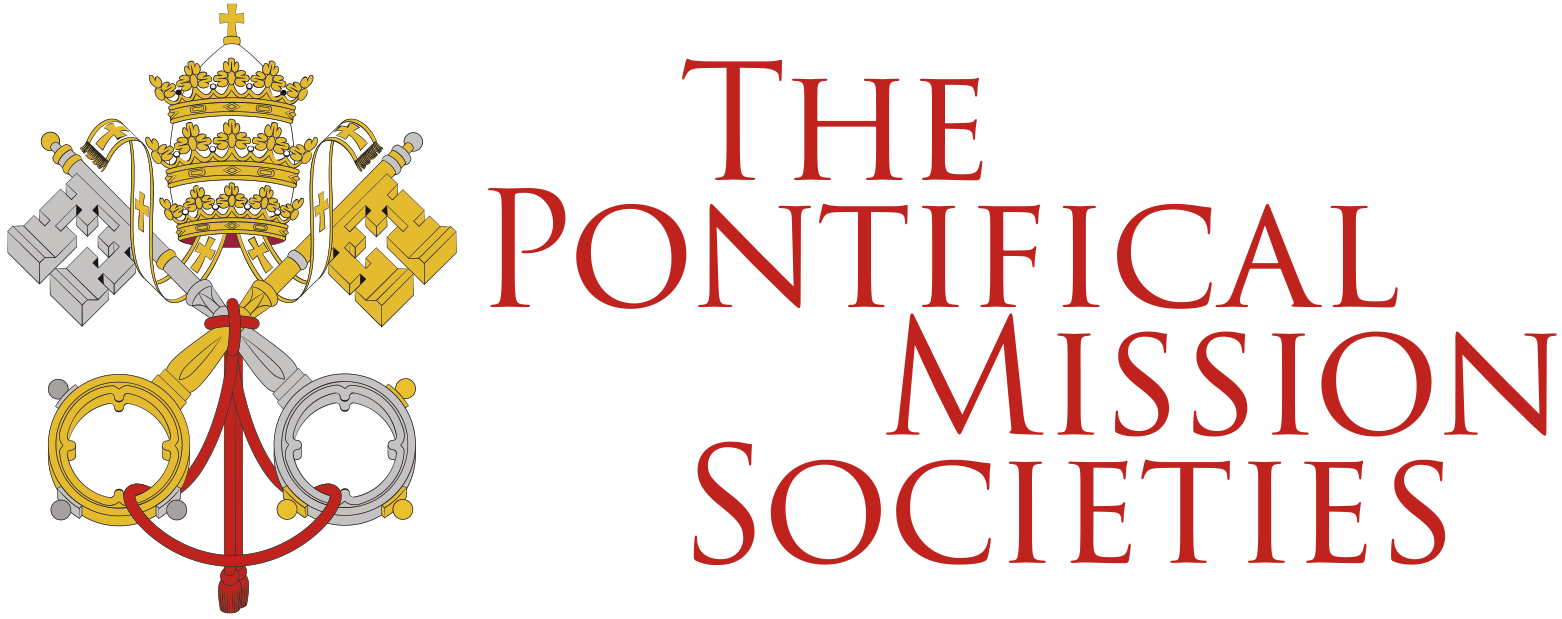
Six years after the end of a decades-long bloody war that ended in 2005, South Sudan got its independence from Sudan, becoming the youngest nation in the world. Yet the bloodshed started all over again in 2013, with a civil war. Brutal fighting broke out, characterized by extreme sexual violence, the use of child soldiers, and attacks on civilians along ethnic fault lines.
Violence marked the entire life and vocation of Father Onesimo Keneyi Joseph Venansio who, as God only could have it, was born in 1977, on April 16th – the same day as Pope Benedict XVI. When the second Sudanese civil war broke in 1984, the village where he lived with his family was besieged, and no one was allowed in or out for months. There was only one exception: Father Michael Barton, a missionary from the United States.
“This Catholic priest was the only person who was allowed to come to us and give us courage, support us both materially and spiritually, giving us food for the body and for the soul,” he said. “As a young boy, I saw what he did with us and for us, and I knew that I wanted to become a priest so, if war ever broke again, I too could bring my people support and encourage them to stay firm in their faith.”
No one was able to leave the village, until the entire community was transported into Juba, where they lived as refugees. In 1994, at the age of 17, Father Onesimo joined the minor seminary. They were a small group back then, he said, but today, there are over 80 young boys in South Sudan’s central minor seminary – each of the seven dioceses has one – and 46 young men in the only seminary in the country.
It did not take long for God to put Father Onesimo to the task in terms of bringing comfort to those affected by senseless violence: soon after his ordination in 2007, he was tapped by his bishop to assist in the funeral of 14 teenagers who had been killed in a small town seven miles from the St. Joseph Parish in Juba where he served.
“I feel like, without a priest, people in situations such as that one could easily lose hope, lose sight of the fact that life, when infused by the enormous gift of faith, is a tremendous gift that we are called to protect,” he said from Rome, Italy, where he was sent by his archbishop to study civil and canon law. “There is a dire need for highly educated people in my country. That is why I am here, though my heart, and my thoughts, are always in my home, with my people.”
Sending a priest to Rome is an incredible sacrifice to a diocese in South Sudan: they receive no salary for their jobs, and most bishops can barely afford the estimated $300 that helps cover a priest’s meals for a month in a religious community.
“If you need gas to visit the many parishes that are far from the centers of the city, or when the time comes to buy a Bible, medicines, or even a light bulb, we rely exclusively on the faithful, who are poorer than we are, or from Catholics all over the world, who support us through The Pontifical Mission Societies or Caritas.”
An estimated 82 percent of the country’s population lives with $1.90 a day.
About 400,000 people have died since the civil war broke in South Sudan in 2013, and more than a third of the country’s 12 million people were uprooted, sparking Africa’s worst refugee crisis since the 1994 Rwandan genocide.
Located in northeast Africa, this nation of 11 million people shares borders with some of the continent’s poorest countries, most of which have seen civil conflicts in recent years: African Republic, Central African Republic, Democratic Republic of the Congo, Ethiopia, Kenya, Sudan and Uganda.
It is estimated that 2.2 million people, nearly 20 percent of the population, are internally displaced following the conflict – with the United Nations warning that up to 10 million will need food aid in 2023.
A peace deal was signed in 2019, with a lot of help from three local Christian leaders as well as Pope Francis and Anglican Archbishop Justin Welby, head of the Church of England; yet, the endemic violence continues, despite South Sudan often being labeled as a “forgotten country waging a forgotten war.”
But Francis and Welby are asking us to pay special attention to this bleeding nation. To make their point, they will be visiting South Sudan from February 3–5, after a papal visit to the Democratic Republic of Congo. In doing so, they will be fulfilling a promise made in 2019 and conducting a trip postponed first due to the COVID 19 pandemic and then again last year due to the Pope’s mobility issues .
By donating to The Pontifical Mission Societies, you help priests like Father Onesimo answer the call of being witnesses to the faith – sharing the Gospel, fostering life and building churches communities in Asia, Africa, the Pacific Island and Latin America.



